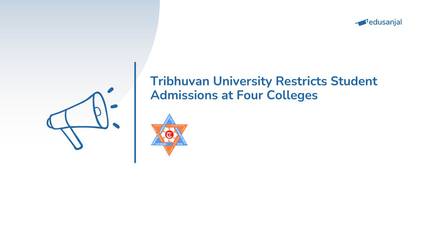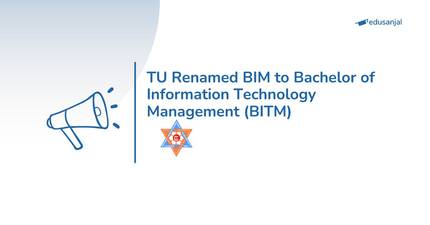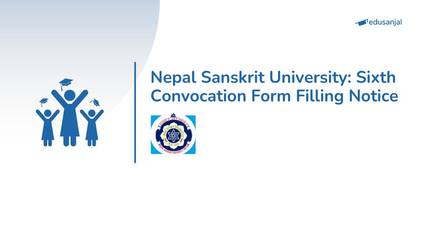In a thought-provoking panel discussion, Prof. Dr. Achyut Wagle, Registrar of Kathmandu University and a prominent economist, shared his profound insights on the philosophy of education and the pressing need for reforms in Nepal's education system. The event, held as part of the 'Study in Nepal' campaign organized by Edusanjal, gathered esteemed educationists, policymakers, and industry leaders to address the critical issue of student retention and education quality in the country.
Dr. Achyut Wagle eloquently emphasized the philosophy of education, which he believes should connect individuals with society and their nation rather than simply producing graduates with a specific profession. He noted that modern education is drifting away from this core principle, resulting in a disconnection between individuals and the broader community, inadvertently producing individuals resembling machines.
Lack of Overarching Educational Philosophy
Dr. Wagle expressed concern about the absence of a coherent educational philosophy in the National Education Policy. He stressed the importance of defining education's main objective as producing individuals who positively impact society and their country. Unfortunately, the prevalent notion that the West sets the benchmark for education has led many talented students to seek opportunities abroad rather than in their homeland.
Lack of Involvement of Political Decision-Making Circles
Dr. Wagle highlighted the failure to engage political decision-making circles in vital discourses related to education, significantly higher education. He pointed out that parliamentary committees rarely discuss or offer opinions on the country's national education policy. He advocated removing political associations from universities to enhance the effectiveness of the education system.
The Credit Bank System
Drawing on international experiences, Dr. Wagle stressed the significance of implementing the Credit Bank System as a transformative measure in Nepal's education landscape. This system allows students to accumulate credits across different educational institutions and programs, providing greater flexibility and options. It empowers learners to pursue interdisciplinary studies and customize their academic journey according to their aspirations and interests.
This innovative approach encourages a holistic understanding of diverse subjects, preparing students to become adaptable and versatile professionals poised to contribute effectively to society and the workforce. It aligns education with the evolving demands of the modern world, where versatility and adaptability are valued attributes.
Balancing Human Resources Demand and Supply
Discussing the critical human resources issue, Dr. Wagle emphasized universities' pivotal role in bridging the gap between demand and supply. Despite Nepalese graduates achieving significant success and securing good positions abroad, the local job market often needs to recognize their skills and qualifications. Dr. Wagle emphasized the need for universities to produce human resources that align with the country's development needs.
Understanding the nation's development needs is paramount to strategically aligning educational programs with the market requirements. Universities need to concentrate on producing human resources that meet the specific demands of the country's overall progress.
Leadership with Accountability
Additionally, he stressed the significance of political leadership being accountable for the decisions that shape the education system. In his fervent appeal, Dr. Wagle underscored the paramount importance of political leadership in establishing accountability for the decisions that govern the education sector. With a clear sense of urgency, he called for an environment where policymakers are answerable for the policies they implement and their implications on the country's future.
By fostering a culture of accountability, the nation can ensure that educational policies are crafted and executed with diligence, backed by a deep understanding of the needs and aspirations of its citizens. This accountability will create an ecosystem where education policy is dynamic, responsive, and aligned with the changing landscape of the nation and the world.
Unraveling the Outcomes of Abroad Study
With a discerning eye on the trend of students seeking higher education opportunities abroad, Dr. Wagle urged the need for comprehensive research to delve into the actual outcomes of this endeavor. Delving beyond mere statistics, he sought to understand whether these students complete their degrees or opt for alternate paths, such as seeking improved quality of life or better job opportunities in foreign lands.
The call for such research stems from the necessity to inform policy decisions with accurate and reliable data. By unraveling the intentions and outcomes of studying abroad, Nepal can tailor its educational strategies and initiatives, addressing the underlying reasons behind students choosing foreign institutions over domestic ones. The findings from this research can serve as a compass, guiding the nation in shaping an education system that not only meets the aspirations of its youth but also addresses the challenges of brain drain and talent retention.
In conclusion, Prof. Dr. Achyut Wagle's insights reverberated through the audience, reiterating the urgency for comprehensive education reform through the implementation of the Credit Bank System. He emphasized the importance of empowering students to explore various disciplines and adapt to the evolving demands of the global landscape, effectively meeting the nation's human resources needs.
The 'How to Retain Students in Nepal' panel discussion, organized by Edusanjal as part of the 'Study in Nepal' campaign, signifies the collective commitment to nurturing a dynamic and progressive education system that retains talented students, empowers graduates, and propels Nepal towards a prosperous future.













